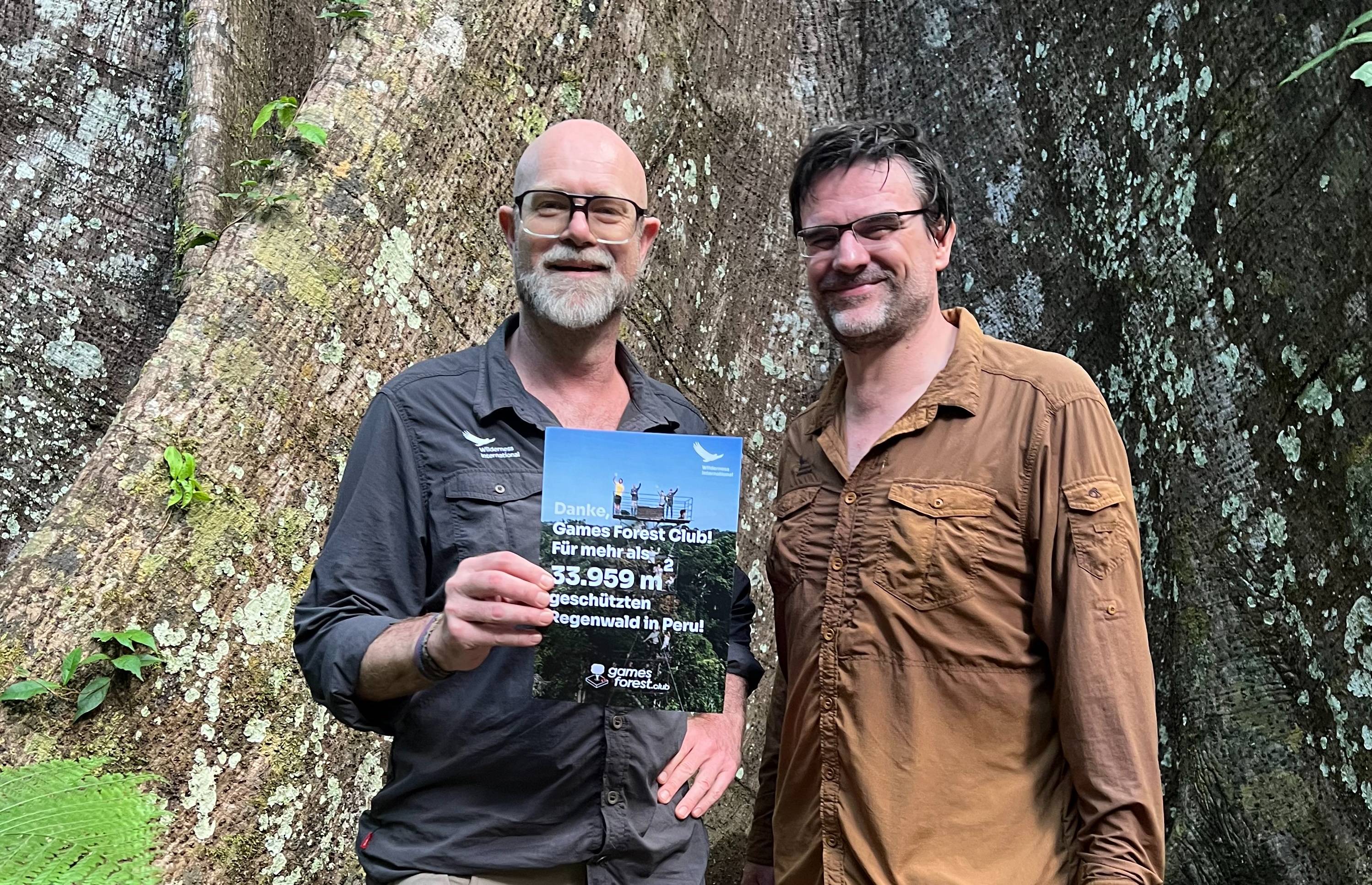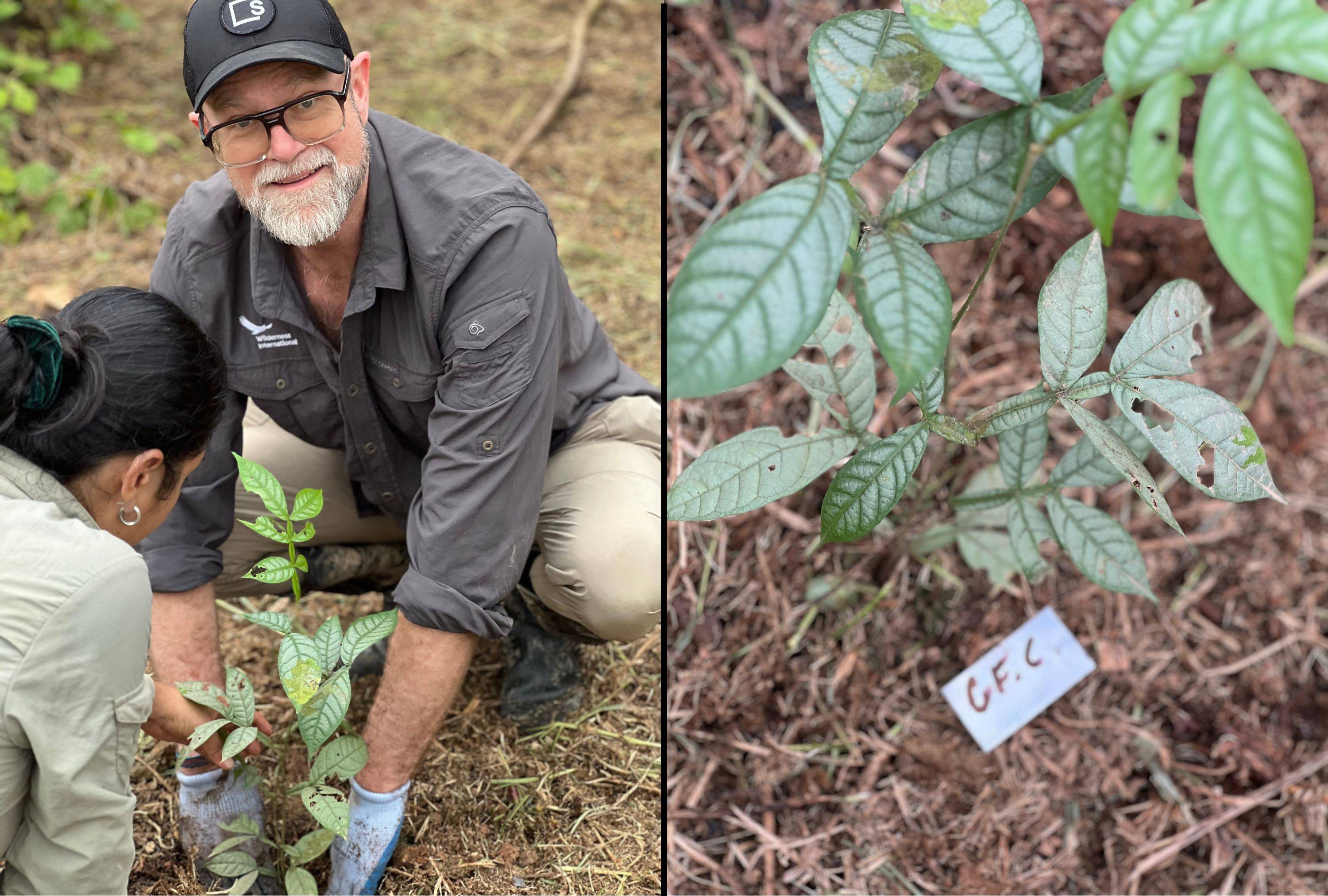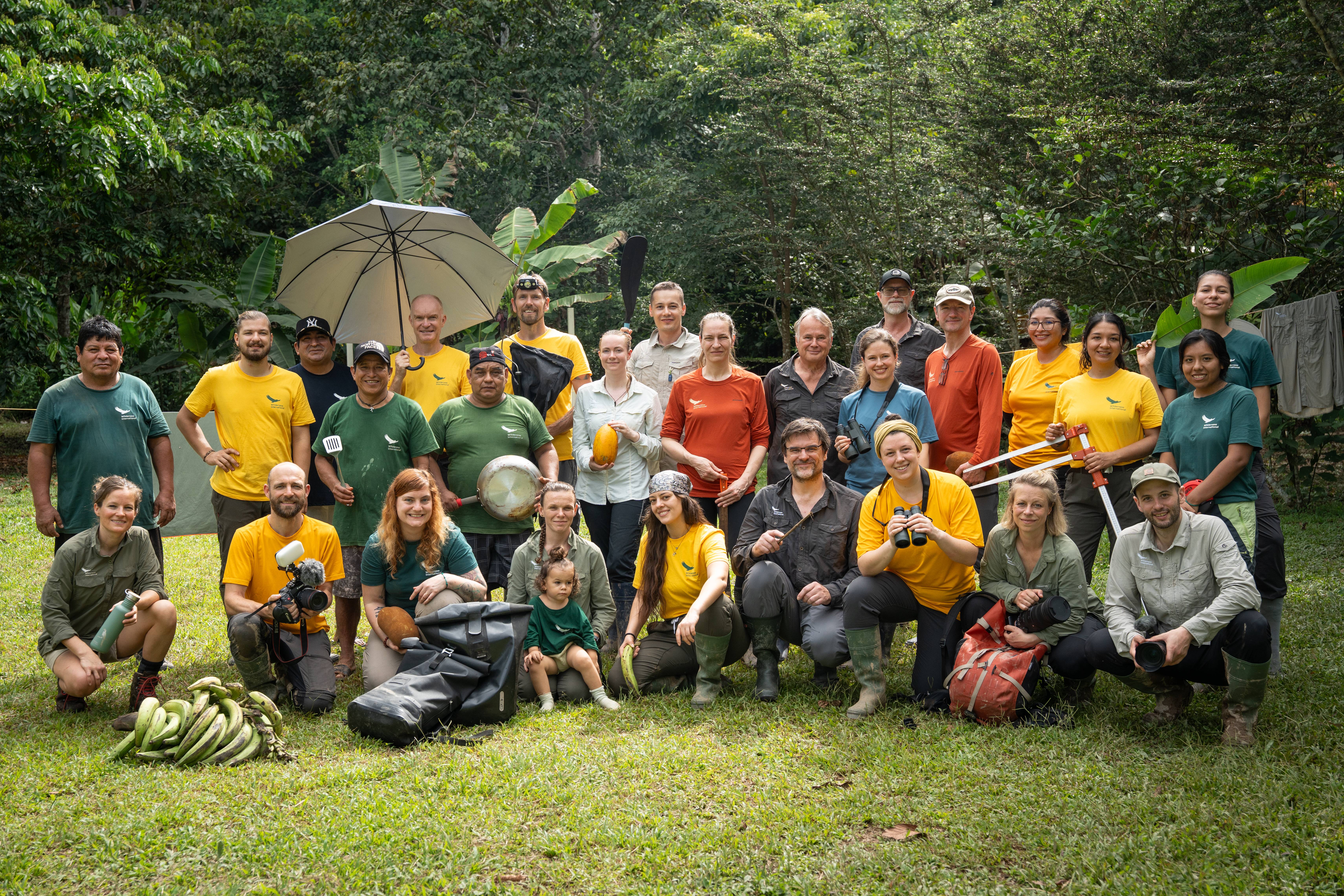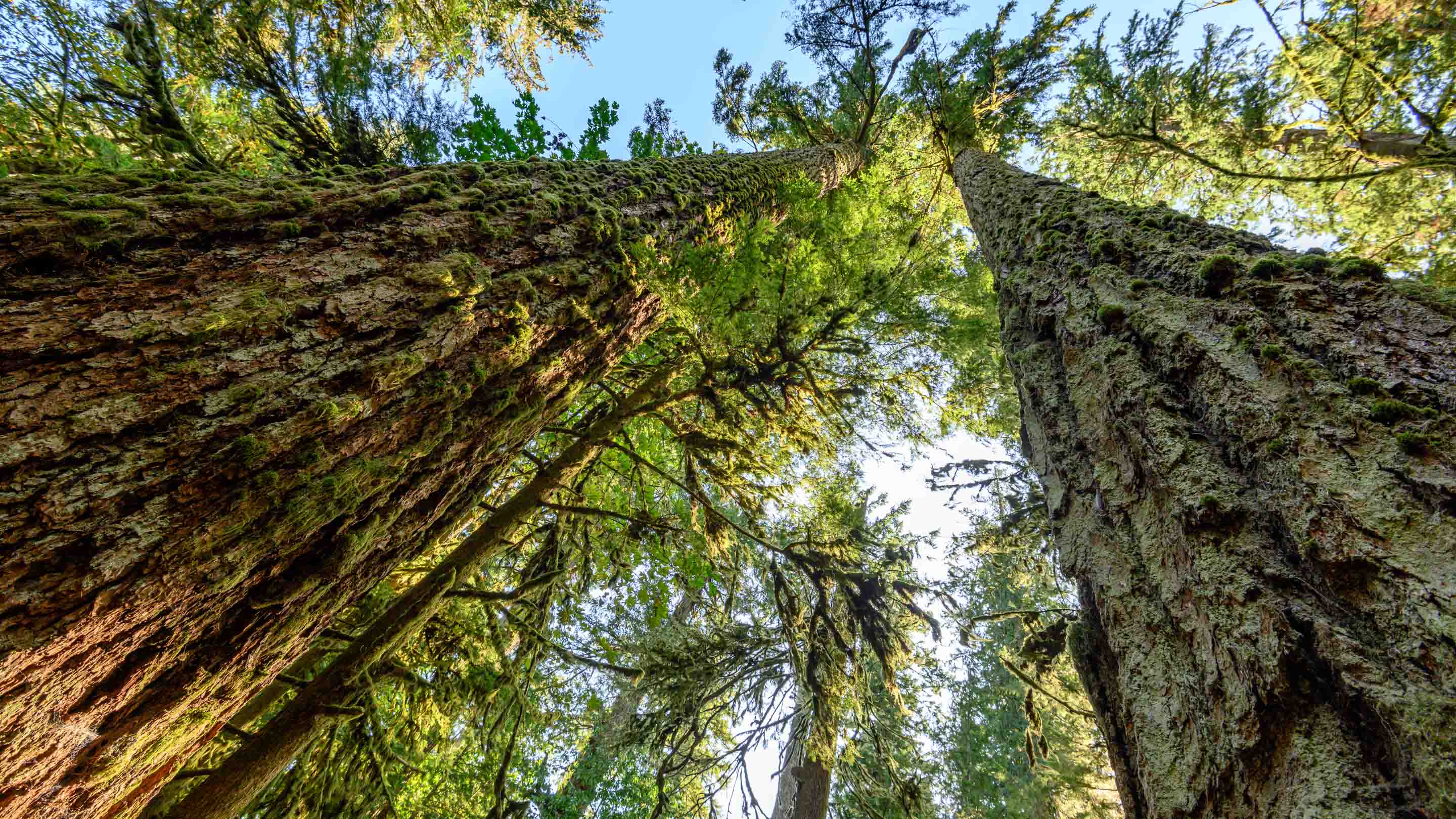The GF.C Forest
Protect wilderness together with the GamesForest. Club

Game on for wilderness protection
The GamesForest.club has joined the mission of Wilderness International to protect the last rainforests on our planet and thus counteract climate change. Together we are protecting rainforest in Peru and Canada, and with it, valuable habitat for a huge variety of species!
How many square meters of forest can we protect?
With the GamesForest.Club, we want to demonstrate that the games industry can make a real impact. Our collaboration with Wilderness International is a project close to our hearts – because it allows us to concretely and effectively protect rainforests in Peru and Canada, thus contributing to biodiversity conservation and climate protection. It's about taking responsibility – together with our network.
Georg Broxtermann
Initiator GamesForest.Club & CEO / Founder GameInfluencer
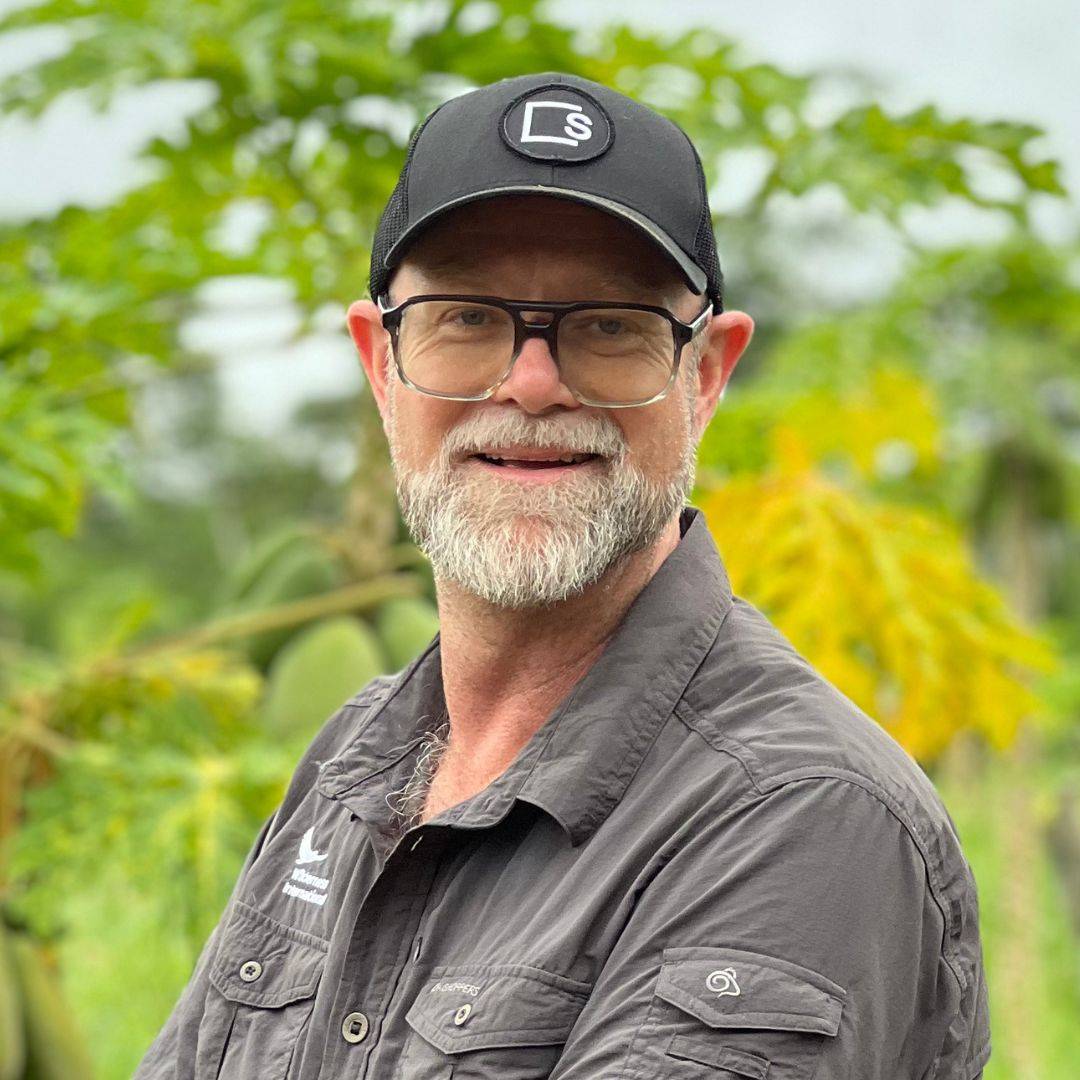

GamesForest.Club is a German non-profit organization that uses the power of games and technology to promote environmental protection and climate action. GamesForest.Club works with game developers, publishers and gaming communities to turn virtual engagement into tangible environmental impact. Our platform integrates game mechanics with real-world reforestation, conservation and climate action projects, mobilizing millions of gamers worldwide to take action for a greener planet. By making climate action engaging, accessible and scalable, we aim to drive systemic change in the way individuals and industries approach sustainability.
Your donation at a glance:
Concrete use: 1 € donation protects 1 m² rainforest
Good for the climate: 60 kg of CO2 remain permanently stored in living biomass
Transparent: you will receive a certificate with the geo-coordinates and an aerial photo of the protected forest area
Lasting impact: your one-time donation guarantees the permanent protection of the area
Tax-deductible donation with donation receipt
Your wilderness certificate
Immediately after your donation, you will receive a personalized certificate about the piece of wilderness you have protected. It also makes a great gift!
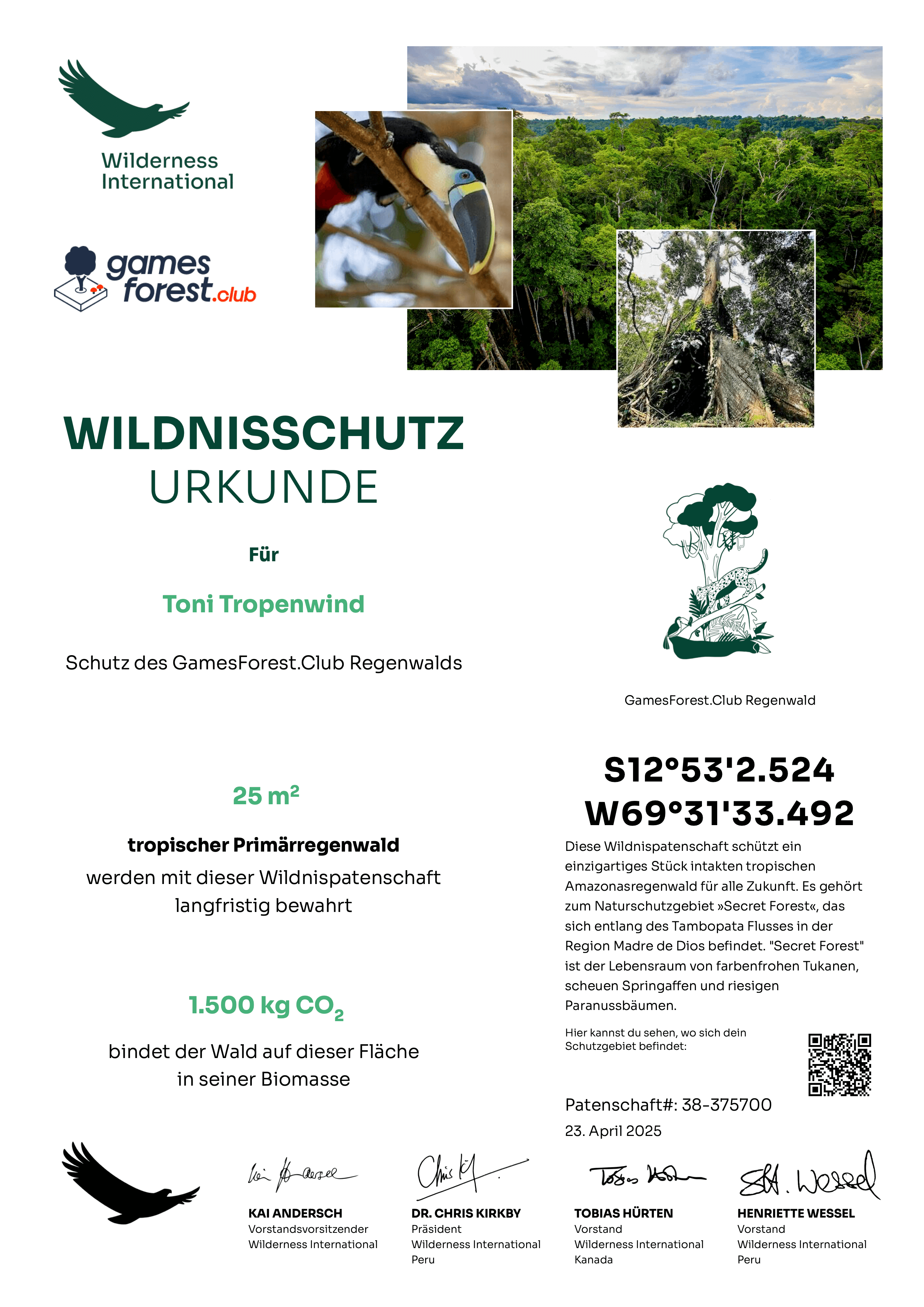
The GamesForest.Club in Peru
Georg Broxtermann accompanied us on our expedition to the Secret Forest in Peru . There, he looked over the shoulders of our researchers, took a look at our projects on site and, of course, visited the GamesForest.club forest.
GamesForest.Club in Canada
Our protected areas in Canada - the Misty Forest - are largely located on Porcher Island, about 40 km south of the port city of Prince Rupert and not far from the Alaskan border.
What is the temperate rainforest?
About Wilderness International
The foundation, which is based in Peru, Canada and Germany, purchases legally secure wilderness areas and protects them for the future. The purchases are refinanced through donations, which ensure the long-term protection of the areas, supports environmental education projects, and research into CO2 storage and biodiversity.


